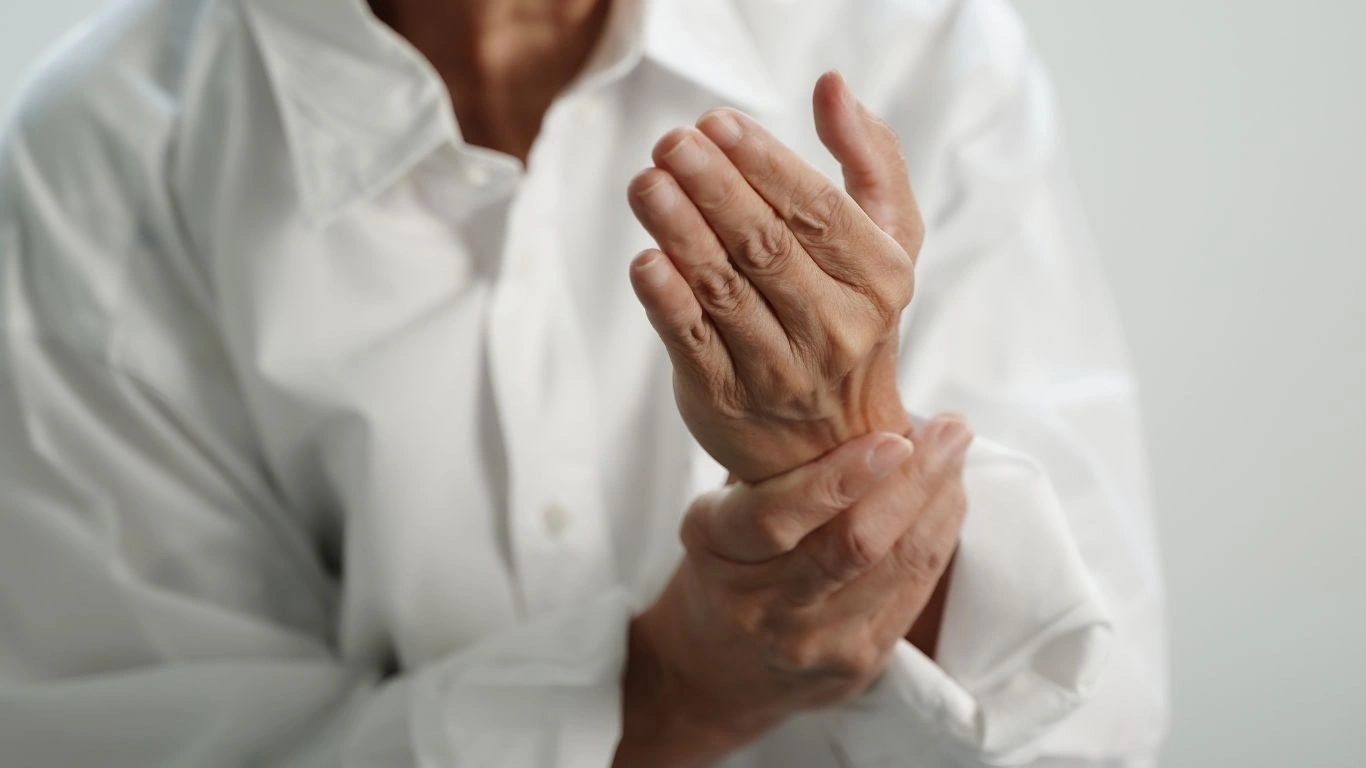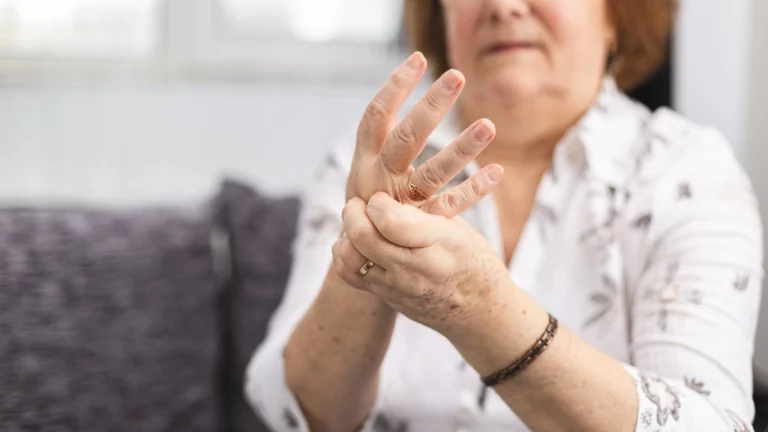Struggling with Rheumatoid Arthritis Stress? Powerful Ways to Cope
Living with rheumatoid arthritis (RA) isn’t just about managing joint pain and stiffness—it’s also about handling the emotional rollercoaster that comes with it. Coping with rheumatoid arthritis stress and anxiety can be just as challenging as dealing with the physical symptoms. I’ve been there myself, feeling the weight of unpredictability, the frustration of flares, and the anxiety that sneaks in when you’re trying to go about your day. But here’s the good news—you’re not alone, and there are ways to ease the mental strain while caring for your body.
Understanding the Mind-Body Connection in RA

RA isn’t just a joint condition—it’s an autoimmune disease that affects your entire body, and that includes your mental well-being. Stress and anxiety can actually worsen inflammation, making flares more intense. It’s a vicious cycle: stress triggers inflammation, which then leads to more pain, which in turn fuels more stress. I’ve seen firsthand how important it is to address both the physical and emotional impact of RA.
Why RA Triggers Anxiety
There are plenty of reasons why rheumatoid arthritis takes a toll on mental health:
- Uncertainty: Not knowing when the next flare-up will hit can create constant anxiety.
- Chronic pain: Persistent discomfort wears on your emotional resilience over time.
- Limitations: Struggling to do things you once enjoyed can lead to frustration and even depression.
- Medication worries: Side effects, long-term effects, and treatment adjustments can be overwhelming.
Recognizing these triggers is the first step toward managing them.
Practical Strategies for Coping with RA-Related Stress

Over the years, I’ve learned that dealing with RA-related stress requires a multi-faceted approach. What works for one person may not work for another, so it’s all about finding the right combination for you.
1. Prioritize Rest & Sleep
Poor sleep makes everything worse—pain, fatigue, and mood. Creating a bedtime routine can make a world of difference. Some things that have helped me include:
- Using a heated blanket to ease joint stiffness before bed.
- Keeping a consistent sleep schedule (even on weekends!).
- Avoiding screens and stressful conversations before bedtime.
2. Try Gentle Movement
When I was first diagnosed, I was afraid of making things worse by exercising. But movement—when done right—can actually reduce stress and stiffness. Some great low-impact options include:
- Yoga: Helps with flexibility and relaxation.
- Swimming: A fantastic way to stay active without putting pressure on the joints.
- Stretching: A simple morning stretch routine can improve circulation and ease stiffness.
Mindfulness and Emotional Well-Being

Taking care of your mind is just as important as taking care of your body when it comes to RA.
1. Practice Deep Breathing & Meditation
One of the best things I ever did for my anxiety was learning deep breathing techniques. A simple five-minute meditation each morning can set the tone for the day and keep stress at bay.
2. Build a Support Network
It’s easy to feel isolated with RA, but having people who truly understand makes all the difference. Some options include:
- Joining a local or online RA support group.
- Talking openly with friends and family about your needs.
- Finding a therapist who specializes in chronic illness.
3. Keep a Journal
Writing things down has been my secret weapon for managing both pain and stress. Tracking flares, moods, and triggers can help you recognize patterns and make adjustments to your routine.
How Diet and Nutrition Affect RA Stress and Anxiety

Let’s talk about food—because, trust me, what you eat can make or break your inflammation levels. When I first started adjusting my diet for rheumatoid arthritis, I didn’t think much about its impact on my mental health. But then I realized something: the foods that ease RA symptoms often also help reduce stress and anxiety. It’s a double win.
Anti-Inflammatory Foods That Support Mental Health
There’s no magic cure-all, but focusing on anti-inflammatory foods has made a noticeable difference for me. Here are some of the best choices:
- Fatty fish (salmon, sardines): Loaded with omega-3s that help fight inflammation and boost brain function.
- Leafy greens (spinach, kale): Packed with antioxidants that support brain health.
- Berries (blueberries, strawberries): Full of flavonoids that can reduce oxidative stress.
- Nuts (almonds, walnuts): Great for healthy fats and magnesium, which helps with anxiety.
- Turmeric: This one’s a game-changer! Curcumin, its active compound, has powerful anti-inflammatory and mood-boosting effects.
Switching up my meals to include more of these foods has helped me feel more in control—not just of my RA symptoms but also my overall mood.
What to Avoid
On the flip side, some foods can increase inflammation and make stress and anxiety worse:
- Processed sugars: Spikes in blood sugar can lead to energy crashes and mood swings.
- Refined carbs: White bread, pasta, and pastries can increase inflammation.
- Excess caffeine: I love my morning coffee, but too much caffeine can make anxiety worse.
- Alcohol: While a glass of wine might seem relaxing, alcohol can interfere with sleep and make inflammation worse.
Adapting to Lifestyle Changes Without Feeling Overwhelmed

One of the hardest parts of living with RA is adapting to lifestyle changes without feeling like you’re missing out. I used to resist making adjustments because I didn’t want my condition to “win.” But over time, I’ve realized that small changes aren’t about giving in—they’re about taking charge.
1. Finding a Routine That Works for You
Having a structured routine has helped me reduce stress and feel more in control. Some key things I focus on:
- Starting my day with gentle movement and deep breathing.
- Scheduling breaks to rest and stretch throughout the day.
- Prioritizing self-care without guilt.
2. Learning to Say No
One of the biggest lessons I’ve learned? I don’t have to say yes to everything. Overcommitting leads to stress, which leads to flares. Setting boundaries is an act of self-care, not selfishness.
3. Letting Go of Guilt
This one’s tough, but it’s crucial. There will be days when you just can’t do it all—and that’s okay. Give yourself permission to rest without feeling guilty. Your body is doing its best, and so are you.
Case Studies & Real-Life Examples

One of the best ways to understand how to manage rheumatoid arthritis (RA) stress and anxiety is through real-life examples. I’ve worked with many individuals who have struggled with the emotional toll of RA, and I’ve seen firsthand how the right coping mechanisms can make all the difference.
Lisa’s Journey: Finding Strength Through Support Groups
Lisa, a 42-year-old teacher, was diagnosed with RA five years ago. At first, the stress of managing her symptoms while maintaining her career took a serious toll on her mental health. She often found herself feeling isolated and overwhelmed. However, once she joined a local RA support group, things changed. She connected with others who truly understood her struggles, shared coping strategies, and even formed friendships that helped her feel less alone. Today, she manages her stress through a combination of therapy, online support communities, and daily mindfulness exercises.
David’s Strategy: Exercise as a Mental and Physical Relief
David, a 50-year-old construction worker, struggled with severe anxiety after his RA diagnosis forced him to change careers. Physical pain was one thing, but the emotional distress of losing the job he loved was even harder. His breakthrough came when he started gentle swimming and yoga. These low-impact exercises helped ease his joint pain while also improving his mental well-being. He now swears by daily movement as a way to keep both his body and mind strong.
Key Takeaways: What You Need to Remember
- You’re not alone. Many others are navigating RA and its emotional effects. Connecting with a support network can be life-changing.
- Stress management is a journey. What works today might need tweaking tomorrow. Stay open to new strategies.
- Mind and body care go hand in hand. Physical relief often leads to mental relief, and vice versa.
- Professional help is available. Therapy, counseling, and even medication can be powerful tools in managing stress and anxiety.
FAQs
Can stress make rheumatoid arthritis worse?
Yes! Stress can trigger inflammation, worsen pain, and even lead to RA flares. Finding ways to manage stress is crucial for keeping symptoms under control.
What are the best relaxation techniques for RA?
Deep breathing, meditation, yoga, and progressive muscle relaxation are all effective ways to calm your nervous system and reduce anxiety.
Absolutely! Mental health is just as important as physical health. A therapist can help you develop coping strategies and work through the emotional impact of RA.
Bonus: Additional Resources or DIY Tips
If you’re looking for extra help, here are some resources that might be useful:
- Arthritis Foundation – Great for research, support, and treatment options.
- Headspace – Offers guided meditation for stress relief.
- MyRA App – A tracker designed specifically for rheumatoid arthritis management.
Appendix: Table, References, Disclaimer, and Call to Action
| Resource | Purpose |
|---|---|
| Arthritis Foundation | Provides education and support for RA patients. |
| Headspace | Offers mindfulness and meditation techniques. |
| MyRA App | Helps track RA symptoms and medication schedules. |
Disclaimer: This article is for informational purposes only and should not replace professional medical advice. Always consult your doctor before making changes to your RA management plan.
Ready to take control of your RA stress? Start by incorporating small changes into your daily routine. If you found this helpful, share it with someone who might need it!

Tarra Nugroho is a dedicated Nurse Practitioner with a strong foundation in family and preventive care. She brings both compassion and clinical expertise to her practice, focusing on patient-centered care and health education. As a contributor to Healthusias.com, Tarra translates medical knowledge into clear, empowering articles on topics like women’s health, chronic disease management, and lifestyle medicine. Her mission is simple: help people feel seen, heard, and informed—both in the clinic and through the content she creates. When she’s not caring for patients, Tarra enjoys weekend hikes, plant-based cooking, and curling up with a good health podcast.







